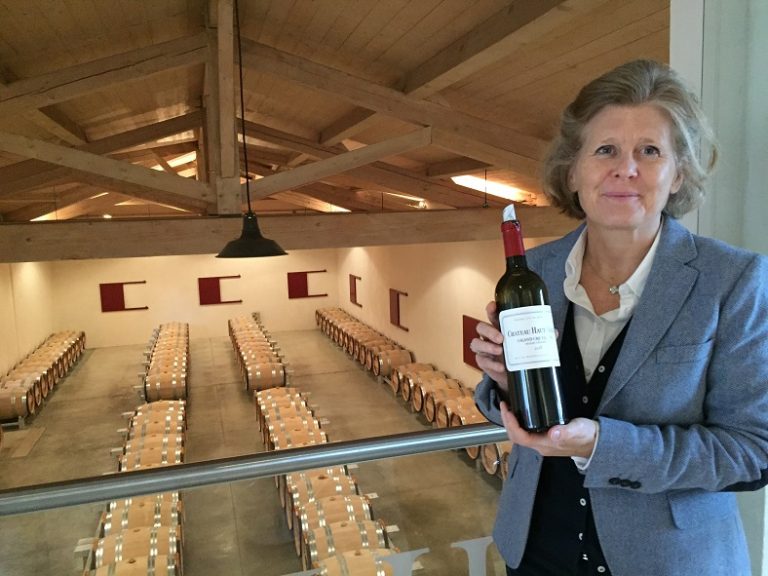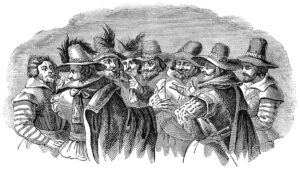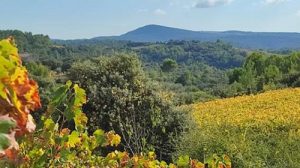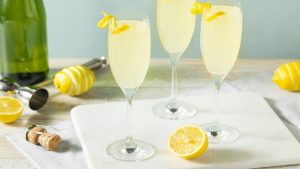Join us for part two of our tasting report. This week, we turn our attention to the Left Bank.
Saint-Estèphe
Like in Pauillac, the quality is homogenous, nicely fruity, silky texture, suppleness and elegance. Our favourites: Lafon-Rochet, Phélan Ségur.
Lots of fruit (small red fruits), very supple and velvety, elegant, with aromas of tart red fruits. Lots of potential – one of our favourites!
Small, sour fruits on the nose. Full-bodied, supple, silky and elegant on the palate.
Pauillac
For us, Pauillac represents one of the finest successes for the vintage, with a very high level in several properties. We adored their aromas of tart red fruits and undergrowth, ultra-silky tannins, freshness, power and density. Among our favourites are the châteaux Pichon Longueville Comtesse de Lalande, Haut-Bage Libéral and Duhart-Milon.
Captivating nose with lovely notes of red fruits (raspberry). Very concentrated, lovely finish. The château’s classic style.
– Château Haut Bages Libéral (79% Cabernet Sauvignon | 21% Merlot)
In the process of obtaining organic certification.
Lots of fruit. Sauve, a model of balance, drinkability; on the palate, at once fresh and powerful. Very pleasant surprise
– Pichon Longueville Comtesse de Lalande
Very expressive as a whole, with notes of thyme and wild herbs, undergrowth. Rich on the palate, dense, with notes of blueberry. Delicious, at once powerful and elegant.
Lovely surprise with this vintage, intense fruit. Cabernet Sauvignon harvested at perfect ripeness, a very charming wine. Balanced, fluid and refined on the palate, with aromas of sour fruits.
At Château Pontet-Canet, we had the pleasure of tasting an excellent yet rare 2018. A large part of the harvest – around two thirds – was lost to mildew, as the teams decided to stay true to their biodynamic viticulture and not use chemical treatments. The harvests began on the 24th September for the Merlot and ended on 5th October with the Cabernet Sauvignon. Vinifications were even more meticulous than usual with, for example, a new, entirely manual sorting table.
– Pontet-Canet (70% Cabernet Sauvignon | 22% Merlot | 5% Cabernet Franc | 3% Petit Verdot
The nose is complex and very expressive, delicious, offering aromas of red and black fruits as well as tertiary notes of undergrowth and mushroom. On the palate, there is a superb balance, very silk, powerful, with elegant tannins and a lovely freshness. Very precise and the length is impressive. Superb wine.
– Aile d’Argent (55% Sauvignon Gris | 45% Sauvignon)
Nose with white fruits (peach), citrus fruits, smoky notes, ginger. Vibrant on the palate, full-bodied, rich and unctuous, with very well-integrated acidity and a nice length.
– Petit Mouton (56% Cabernet Sauvignon | 40% Merlot | 4% Cabernet Franc)
Nose of ripe black fruits, notes of chocolate and liquorice. Rich and fruity on the palate, with a nice freshness, fluid and velvety with a long finish.
– Mouton Rothschild (86% Cabernet Sauvignon | 12% Merlot | 2% Cabernet Franc)
Nose with notes of forest fruits, blackberry, violet and cigar box. Fruity and light on the palate even with the many (refined and ripe) tannins, freshness and a nice length.
Saint-Julien
The tasting was less homogenous here, and our favourites less numerous: Châteaux Saint-Pierre, Gruaud Larose and Branaire-Ducru.
– Château Beychevelle (54ha/hl)
The well-draining soil next to the river helped the vineyard to overcome the period of drought. A very expressive wine, with floral and minty notes. Very concentrated and balanced.
Lactic nose, with notes of salted caramel. On the palate, very fluid. Notes of liquorice. Very nice finish.
– Branaire Ducru (65% Cabernet Sauvignon | 33% Merlot | 5% Petit Verdot | 4% Cabernet Franc
Notes of gooseberry, well-rounded and glycerine on the palate. Lots of energy.
Very fresh nose, minty with floral notes. Lightly toasted oak on the palate. Nice tension, and energy; elegant despite a lot of tannins.
Margaux
In the Margaux appellation, we tasted promising wines, particularly from Kirwan, Labegorce, Le Tertre, Marquis de Terme, Rauzan-Gassies and Siran. Very well-balanced wines, with good strength, depth and complexity, as well as a very silky texture and refined tannins.
– Chateau Giscours (yields of 32ha/hl – small, concentrated grapes)
Black colour, with notes of prune and tapenade. On the palate, lots of blackberry. Superb substance and length. Excellent wine.
Very dark robe, notes of cherry brandy. Freshness on the palate, well-rounded yet elegant tannins. Nice and chewy juice.
Delicious wine with notes of small red fruits, “a soup of red fruits”. Elegant and balanced on the palate, with nice power.
Nose of eucalyptus and pine. Delicate, direct and chiseled on the palate. Nice balance.
Pessac-Léognan
In our eyes, the finest success stories of 2018 can be found in this appellation. The wines are bursting with fruit; they’re pure, powerful and expressive yet perfectly balanced, retaining remarkable balance. We were taken away!
- Château Carbonnieux – red (60% Cabernet Sauvignon | 30% Merlot | 5% Cabernet Franc | 5% Petit Verdot)
Concentrated, with lovely aromas of perfectly-ripe red and black fruits. Nice tannic structure, good potential.
- Château Carbonnieux – white (65% Sauvignon blanc | 35% sémillon)
While discreet on the nose, the wine is much more expressive on the mouth. Well-rounded and already enjoyable to drink. Elegant.
- Château les Carmes Haut Brion +++ (37% Cabernet Franc | 34% Cabernet Sauvignon | 29% Merlot)
Ruby red colour. Charming and pure on the nose. Delicate fruit is the most standout feature, no sign of élevage. Remarkable density. On the nose, aromas of black fruits. Fluid and juicy, the wine gently covers the palate with its velvety texture. Nice balance on the palate, well-integrated tannins, no heaviness whatsoever. The finish is majestic, fresh, and never-ending. Delicious.
- Château Pape Clément – Red+++ (66% Cabernet Sauvignon | 30% Merlot | 4% Cabernet Franc)
Very dense and tight on the palate. Magnificent Cabernet. The power is contained, deploying a concentrated palate of concentrated aromas; black and red fruits and spices intermingle deliciously. Silky long finish.
Intense nose of black fruits. Smoky and spicy notes. Full-bodied on generous on the palate, with notes of red fruits, garrigue and smoked meat. Delicious and digestible. Lovely length.
- Clarence de Haut Brion++
Expressive nose with blackberry, cedar and cigar box. Rich on the mouth with a nice balance. Good length.
- Château La Mission Haut Brion+++ red (53,5% Merlot | 3,6% Cabernet Franc | 42,9% Cabernet Sauvignon)
Closed nose. Vibrant on the palate, with a nice tension. Very mineral, with delicious notes of morello cherry and sour sweets. Precise finish. A charming wine full of potential; promises to age incredibly well.
Château Haut Brion+++ (49,4% Merlot | 11,9% Cabernet Franc | 38,7% Cabernet Sauvignon)
Delicious aromas of black fruits on the nose, cherry, with elegant touches of pencil lead. Round on the mouth, charming. Graphite, minty notes bring a good freshness to balance out the concentration and precise tannic structure. Lots of energy and a finish that goes on and on, ending with notes of perfectly ripe fruit and refreshing bitter notes. A monument of a wine.
- Château Haut Brion – White ++ (80,6% Sauvignon | 19,4% Sémillon)
The blend is rather unusual in 2018, but offers a nose of delicate white flowers and an elegant mouth. The texture is vibrant, ending on a sour, light and delicious finish.
- Chapelle de la Mission Haut Brion+
Very pure nose, light, with ripe red fruits. Vibrant, although the wine is still a little closed, after a few years of aging it will be balanced and mineral, with good acidity and tension.
The elegant, mineral attack opens out with a bouquet of ripe red fruits and spices. Fine tannins, a nice length and delicious finish. Superb balance.
- Château de Fieuzal – Red
A successful vintage for Fieuzal in red and white. Ripe fruit, well-rounded on the palate, no astringence, already ready to drink.
- Château de Fieuzal – White
Cristalline, very nice freshness, citrus fruits on the palate and a nice tension.
- Château Haut-Bergey – Red + ( 42% Cabernet Sauvignon | 40% Merlot | 10% Cabernet Franc | 6% Petit Verdot)
A brilliant wine with extremely fine tannins.
- Château Haut-Bergey – White ++ (80% Sauvignon Blanc | 20% Sémillon)
After three years converting to organics, 2018 is the first certified organic vintage from one of our favourite domains. Fresh and floral on the nose, with delicate aromas of white fruits (pear). Vibrant and mouth-watering, with a delightful finish. A great gastronomic wine.
- Château Lespault Martillac – White
Very nice wine, classic style, with aromas of yellow fruits, citrus notes and a lovely freshness.
Other favourites: Malartic-Lagravière, Larrivet Haut-Brion (white), Lespault-Martillac (white), Pape Clément (white), La Clarté de Haut-Brion
Château Haut-Bailly+++ (65% Merlot | – 35% Cabernet Sauvignon)
Château Haut-Bailly wasn’t spared by this vintage’s weather conditions: the yearly rainfall average (850mm) was in fact reached in only six months. The château’s decision to use only fairly ‘weak’ products to fight against the mildew translated into low yields (21hl/ha). The price paid to produce, yet again, a magnificent wine.
The nose, while discreet, is delicate and aromatic, with elegant mineral notes and absolute purity. On the palate, the wine is vibrant. As is always the case with Haut-Bailly, the texture is silky, the tannins are refined and ripe, and the balance between power and seductive roundness is perfect. The finish is gentle, with lots of freshness and unimaginable precision. A great, complex wine, with a bright future ahead.
The château has renamed its second wine, formerly La Parde de Haut-Bailly, to Haut-Bailly.II. Produced from 10-year-old vines, this wine is charming and crunchy on the nose, with the same finesse as the first wine. Immediately elegant, with marvelously ripe fruit.
Sauternes and Barsac
We finished our tasting of the vintage with the classed growths of Sauternes, at Château La Lagune. Like most of Bordeaux’s appellations, mildew was virulent, limiting the harvest at certain estates. After a warm summer, the vintage was particularly late, with noble rot developing from mid-October. Harvests took place until early November. Château Guiraud unfortunately won’t be producing any wine, as it was particularly hard hit by the hail.
The wines tasted were generally speaking of good quality. Although the 2018 is not an exceptional vintage here, the wines have been very well made. We enjoyed the aromaticity, more often with white fruits and floral notes than exotic fruits. On the palate, some domains managed to retain a nice freshness to balance the richness of the wine. In our opinion, the Châteaux Sigalas Rabaud, Clos Haut-Peyraguey, Suduiraut and Coutet have produced the year’s best offerings.
Médoc, Crus Bourgeois
On the whole, we enjoyed these wines, which can be distinguished from the Médoc’s other wines with its suppleness and fruitiness. These fresh, digestible wines are ready to drink.
Pleasant vegetal aromas on the nose. Black fruits and small red fruits on the nose. Tannic structure and good length.
Floral and vegetal aromas on the nose, liquorice finish.
Red fruits, black cherry blueberry, gooseberry and graphite. Balanced and creamy.
Lovely aromatic complexity with black fruits and touches of liquorice, rounded tannins. Long and fresh on the palate.
Other favourites: Château Lilian Ladouys, Château Poujeaux, Château de Malleret, Agassac…




